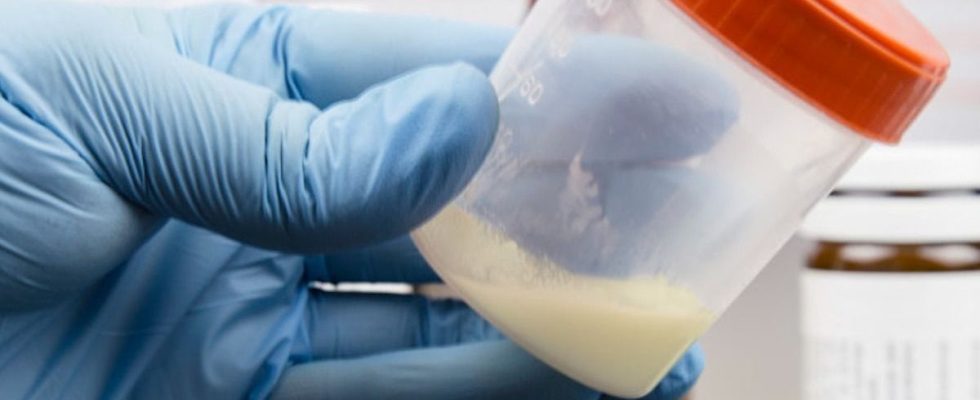Published on
Updated
Reading 3 min.
With dozens of online “classified ads” published every day, interest in “artisanal” sperm donations is not waning in France, those who use them assure AFP, despite the democratization of the legal process. aid in procreation.
“I get a form of recognition from it: when the recipient to whom I made a donation became pregnant, she thanked me, I was able to see some photos of the baby”, delivers a man, father of two children with the same woman via an informal donation. Not wishing to start a family himself, this 37-year-old executive, who prefers to remain anonymous, explains to AFP that he wants to “leave a mark on Earth”.
The opening of medically assisted procreation (MAP) in August 2021 to female couples and single women could have diverted them from social networks and forums where “artisanal” donors and parents waiting for a child meet. But this audience is still present on these parallel platforms, whether in France or in England (we recently spoke to you about “On Facebook, a “black market” in sperm donation exposes women to real dangers”).
To avoid an overly “complicated” and costly journey?
The “PMA for all” has in fact led to an influx of new requests for sperm donations – 15,000 in 2022 compared to 2,000 annually previously according to the Biomedicine Agency – and increased waiting times.
The “classic” PMA? A journey that is too “complicated” and expensive, tells AFP Alma (all first names have been changed), 26 years old, who feared as a young single woman of having to “prove [sa] legitimacy” by obtaining the agreement of a doctor and a psychologist.
“These future parents believe they have the right to ‘become a family’ outside of the institutional process”analyzes the sociologist specializing in the family François de Singly.
Resorting to a sperm donation from an acquaintance (“friendly assisted procreation”) or from a (semi-)stranger, sometimes helps to further guarantee “access to origins and control of information” on the parent, indicates Marie Jourdain of the Association of Gay and Lesbian Parents (APGL).
Children born from legal donations collected after September 1, 2022 will have the right to access information about their donor once they become adults. But sperm straws subject to the old legislation allowing donor anonymity can be sold until March 31, 2025.
Beware of the absence of medical guarantees
Karl, whose wife cannot benefit from assisted procreation in France, wants others to be excluded from PMA “do not suffer the same psychological suffering”. With around ten monthly donations, this 43-year-old consultant explains that he has been the cause of four pregnancies in less than two years.
Another “illicit” donor, aged 64, claims to have fathered no less than 120 children since 2007, a figure that AFP was not able to verify. “I keep a list of births, which I only give to parents”, he declares. In order to avoid the risk of inbreeding, the law limits the number of children from the same sperm donor to 10.
Some “bad surprises”
Publicized since 2016, when he said he had half as many births, the man who nicknames himself “Superpapa” confides that he is no longer in contact with his own four children.
He runs several Facebook groups to connect donors and “recipients”. Each member must specify whether they wish to co-parent, and the desired method: “artisanal” using a pipette; “semi-natural” with penetration at the last moment; or “natural”.
“A lot of donors, upon arriving at an appointment planned for an artisanal donation, impose a natural method on parents”regrets the moderator, who also cites cases of requests for financial compensation.
NO to diets, YES to WW!
A legal risk
Added to this is the lack of guarantees for medical and genetic tests, but also a legal risk. “The donor can change his mind and recognize the child as his own from conception, at any time within the framework of a solo project, or until the adoption judgment within the framework of a couple of women”, warns Marie Jourdan of the APGL.
A possibility that does not frighten Alma, who gave birth to a little boy in August 2022 thanks to a craft donation, and assures her: “It’s the best decision I’ve made in my life.”
